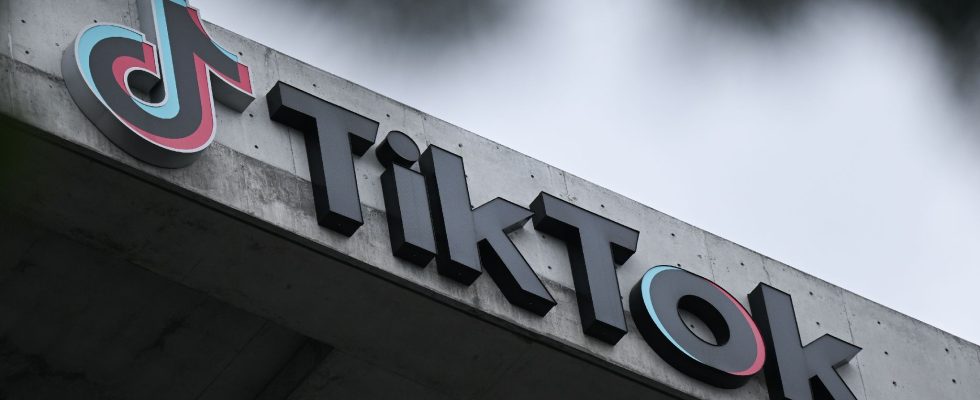Senators want to get out of naivety about TikTok. The Senate commission of inquiry, which for four months looked into the operation and “strategy of influence” of the application of Chinese origin, delivered its conclusions this Thursday, July 6 in the morning, while the social networks are accused of having participated in the runaway recent urban violence in France.
In the viewfinder of the commission of inquiry, the “very addictive” algorithm of the platform and, “despite constant efforts to conceal it, its persistent links with China and its authorities, which pose certain risks to users and , more broadly, on democracies”. The report initially focuses on pointing out the “obvious risks arising from links with China”.
The rapporteur Claude Malhuret insisted on the strong dependence of TikTok on its parent company ByteDance, a company established in the Cayman Islands “for reasons of opacity”, but owned and controlled by Chinese shareholders, required to respect the legislation of their country. . At the beginning of June, the commission had bombarded two leaders of TikTok in France with questions on this subject, without obtaining more than denials and vague answers.
The commission of inquiry highlights in particular “facts of espionage and remote geolocation of journalists investigating TikTok”, “transfers of data from TikTok users to China and to engineers based in China” and ” proven measures of censorship and disinformation for the benefit of China, its geopolitical priorities and the interests of the Chinese Communist Party”.
Extreme attention capture
She then notes a “large collection of data whose use remains opaque”, which allows TikTok to “deduce characteristics that the individual has not actively revealed”, and to draw up “a psychological profile of its users” that the application can “use for commercial purposes”. The commission points more broadly to the opacity of the company, its algorithm and its moderation policy.
The senators also deplore the capture of the attention pushed to the extreme of TikTok. “The short format of the videos allows the algorithm to quickly identify the interests of users. This capture of attention is such that some psychologists consider that there is an ‘addictiveness’ of TikTok”, they write, with the consequences “sleep deficits, attention disorders or sedentary lifestyle”.
According to the report, TikTok users check the app an average of 40 times per day, compared to Twitter’s average of 15 times per day. 4-18 year olds spend an average of 1 hour 47 minutes per day on the application and, while it is prohibited for at least 13 years old, 63% of young French people aged 12 use it. The report also denounces the “illusory” nature of the reports that appear after 60 and then 100 minutes of use.
The commission of inquiry makes a number of proposals to combat these abuses. In particular, the senators call on the government to “suspend TikTok in France and (to) request its suspension within the European Union”, if this social network does not clarify before January 1, 2024 the nature of its links with the Chinese authorities and does not implement “effective” moderation and “effective age control”.
Suspend features in case of riots
The commission also intends to “hold (TikTok) responsible for its content”, because of its “active role” on the videos it broadcasts, in particular by acting “in a targeted manner on the operation of its algorithm” of recommendation, while social networks are accused of having participated in the runaway recent urban violence in France.
Following the wishes of the executive, who this week considered “suspending functionalities” on social networks in the event of new riots, the senators also recommend “a priori moderation in the event of serious disturbances to public order” and the possibility for the authorities “to withdraw or block access” to certain content.
Invoking the risks in terms of cybersecurity, these parliamentarians also wish to extend the prohibition of application in France – today only to state officials – to all personnel of operators of vital importance, public or private operators ” whose activities are essential to the proper functioning and survival of the Nation”, according to the National Information Systems Security Agency.
Finally, they demand “the negotiation of a fair agreement” with the authors’ society against audiovisual piracy, and fairer remuneration for publishers of music used on the platform.
